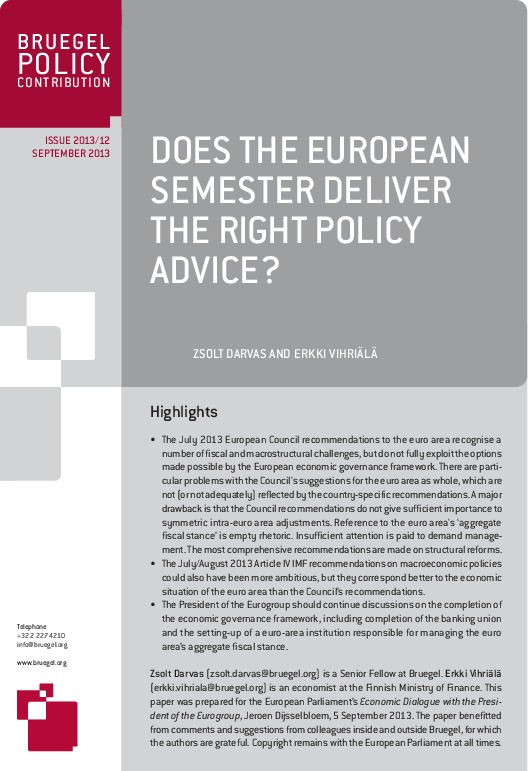Policy Contribution
Does the European Semester deliver the right policy advice?
This Policy Contribution was prepared for the European Parliament's 'Economic Dialogue with the President of the Eurogroup' Jeroen Djisselbloem'. The July 2013 European Council recommendations to the euro area recognise a number of fiscal and macrostructural challenges, but do not fully exploit the options made possible by the European economic governance framework.
This paper was prepared at the request of the Economic and Monetary Affairs Commitee of the European Parliament.
The July 2013 European Council recommendations to the euro area recognise a number of fiscal and macrostructural challenges, but do not fully exploit the options made possible by the European economic governance framework. There are particular problems with the Council’s suggestions for the euro area as whole, which are not (or not adequately) reflected by the country-specific recommendations. A major drawback is that the Council recommendations do not give sufficient importance to symmetric intra-euro area adjustments. Reference to the euro area’s ‘aggregate fiscal stance’ is empty rhetoric. Insufficient attention is paid to demand management.The most comprehensive recommendations are made on structural reforms.
The July/August 2013 Article IV IMF recommendations on macroeconomic policies could also have been more ambitious, but they correspond better to the economic situation of the euro area than the Council’s recommendations.
The President of the Eurogroup should continue discussions on the completion of the economic governance framework, including completion of the banking union and the setting-up of a euro-area institution responsible for managing the euro area’s aggregate fiscal stance.








